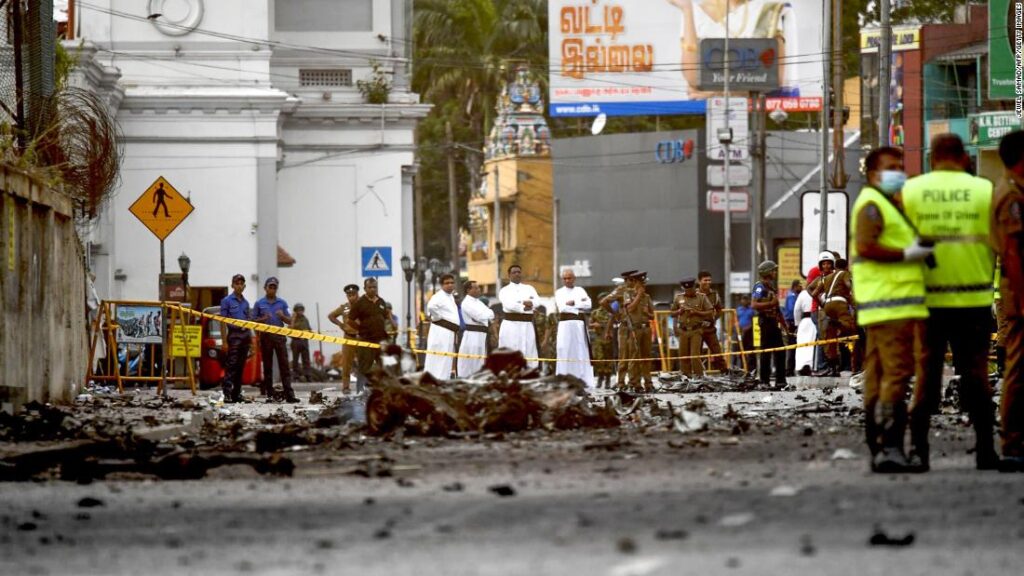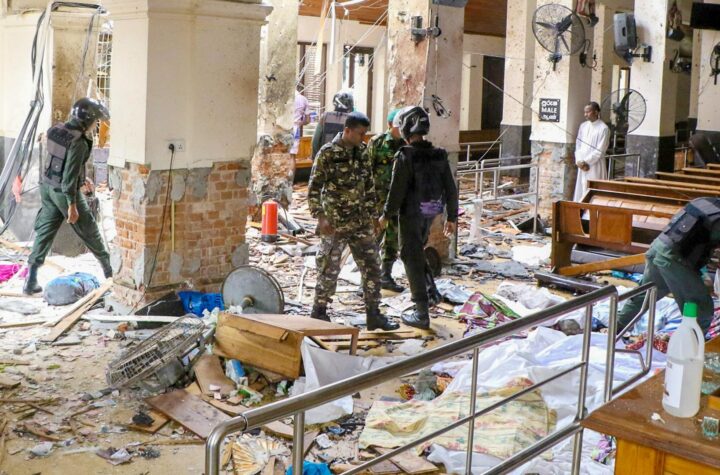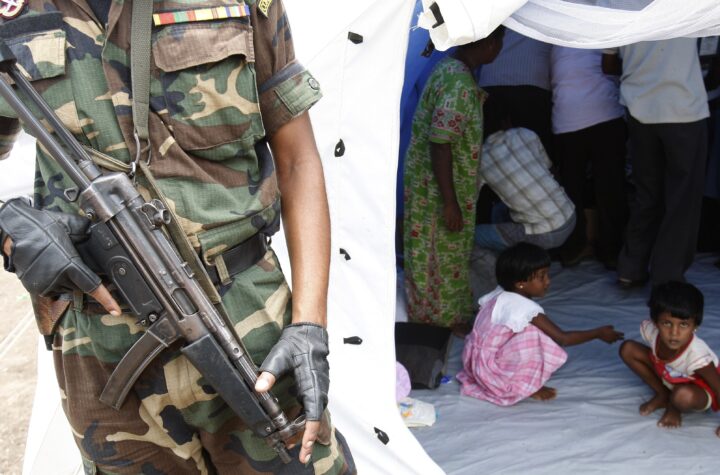
The jihadist group Islamic State (IS) claimed responsibility for suicide attacks on churches and luxury hotels on Tuesday that left more than 320 dead and 500 injured on Easter Sunday in Sri Lanka, some of the deadliest attacks since September 11, 2001.
On CCTV footage, we can see the path of one of the suspected suicide bombers of the Sunday attacks in Sri Lanka. A man with a backpack enters Saint Sebastian’s Church in Negombo, north of the capital, in the middle of Easter Mass, before blowing himself up.
In a meeting with foreign diplomats, Sri Lankan President Maithripala Sirisena showed photos of individuals suspected of carrying out the bombings at several hotels and churches in the capital Colombo.
While local authorities blamed the attacks on National Thowheeth Jama’ath (NTJ), a local Islamist group, ISIS claimed responsibility for the attacks through its news agency AMAQ soon after.
Sri Lankan Prime Minister Ranil Wickremesinghe then spoke to the press: “ We are led to believe that there are links with the foreigner, some evidence shows that. So if ISIS claimed it, we will follow through on that claim. There was suspicion that the Islamic State was linked to these attacks . “
Sri Lanka is receiving international assistance in the investigation and is investigating whether the NTJ has received international logistical support. Investigators are now looking to determine whether the local group was able to benefit from foreign logistical support. According to the first elements of the investigation, these attacks were committed in retaliation for the carnage of mosques in Christchurch in New Zealand.
An alert issued ten days ago
According to Janis Mackey, NBC NEWS correspondent explains: ” Authorities seemed to have known for weeks that there was a potential risk of attack. India issued a long alert warning them of the possibility of an attack. plan in progress by this local group which has already set fire to the powders in India. There was also a security note dated April 11 on which were registered the names and addresses of people suspected of being close to this group “before continuing:” the police were able to arrest 40 people within 48 hours of the bombings. This suggests that they had enough information to know where to look for these people. The question now remains: why these information have they not been passed on to the police? “





More Stories
Search Engine Optimization Market Massive Growth in Asia countries
21 dead in Sri Lanka bombing
Sri Lanka: UN concerned about humanitarian situation after end of conflict